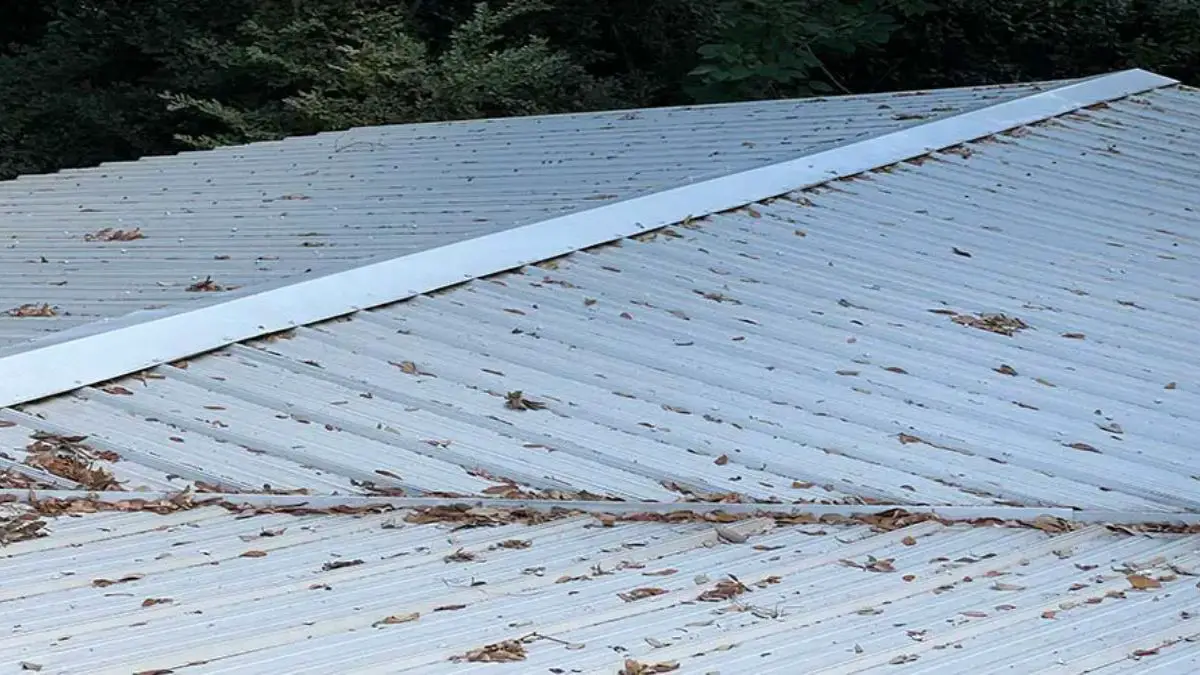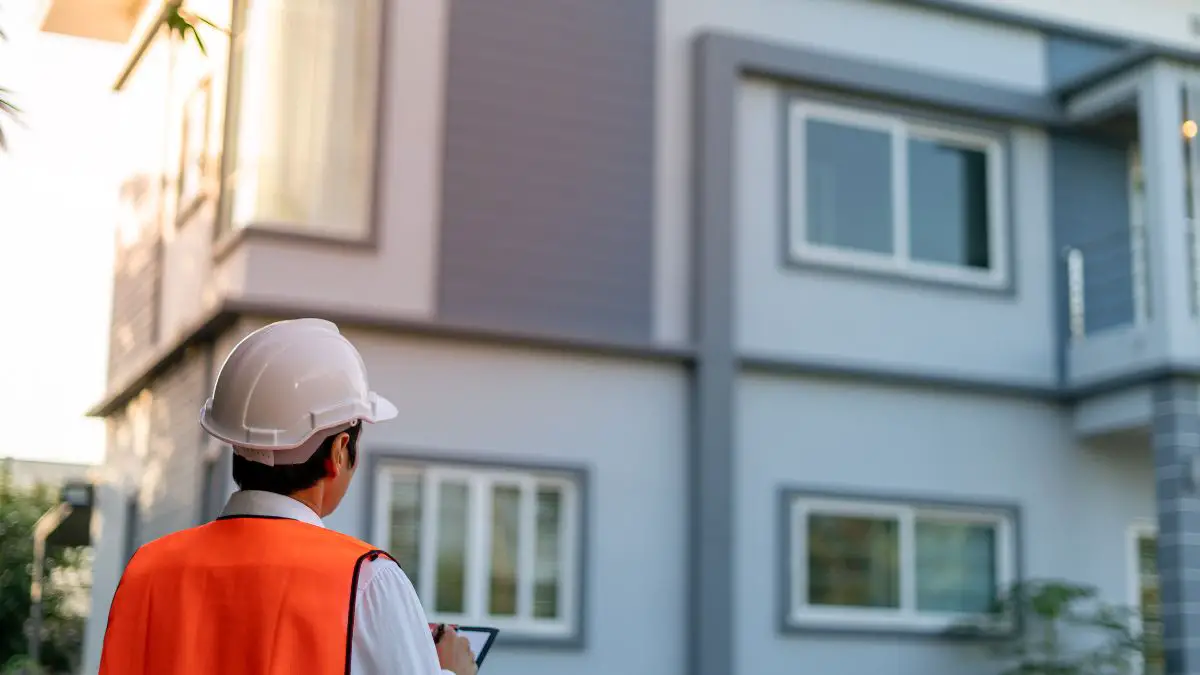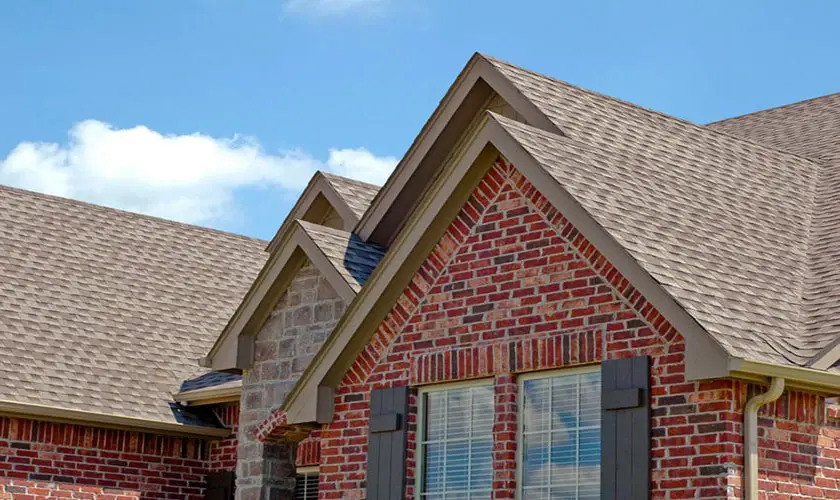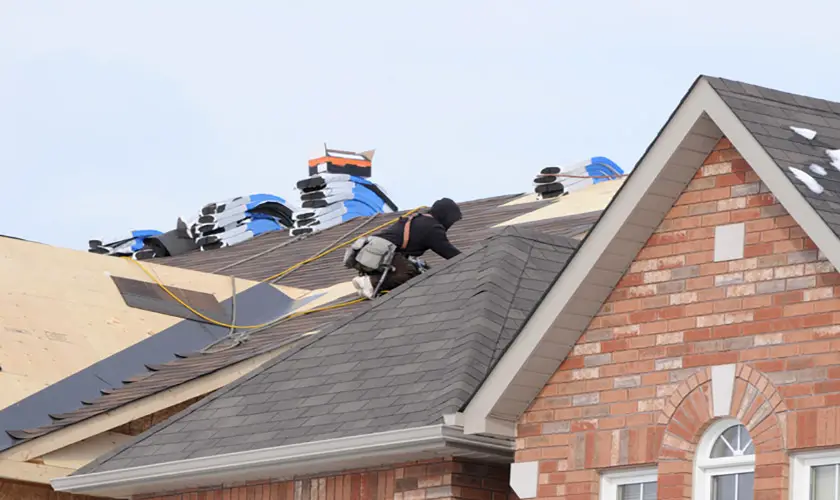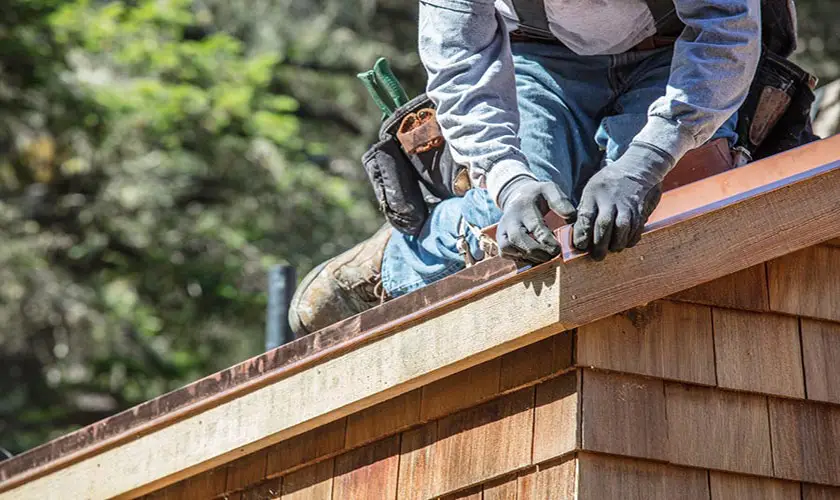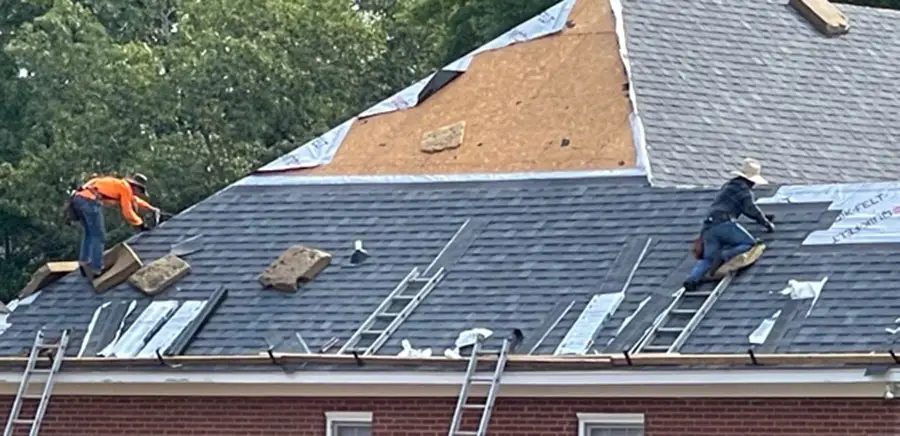
How do you negotiate a new roof? Well, it turns out that you have the upper hand when buying a house. As the home buyer, you pay the piper and mostly get to call the tune.
Don’t be ashamed to negotiate if you want a home with an old or damaged roof. It would be best if you didn’t have to deal with an unattractive or leaky roof. If that happens, in addition to what you used to buy your home, you will need to spend more money to replace your roof. A new asphalt roof can cost from $3000 to over $10,000.
You can get an excellent deal by making a roof the subject of your negotiations. So arm yourself with information and partner with qualified and experienced professionals. This guide will help you get started.
Who Pays For New Roof?
Most roofs last anywhere from 20 to 50 years, depending on the builders’ materials. For example, asphalt shingle roofing usually lasts about 20 years. However, tile, copper, and slate roofing can last five decades before needing replacement.
If you are buying a home, ensure you do everything possible to get the seller to pay for a new roof. It costs an average of $7,000 to $12,000 to replace a roof, which is expensive. The price is standard for homes of about 2,000 square feet. Anything more significant will cost you more.
However, getting a home seller to pay for a new roof is tricky. No seller wants to spend money on roof replacement. Instead, they want to get as much money as possible for their properties.
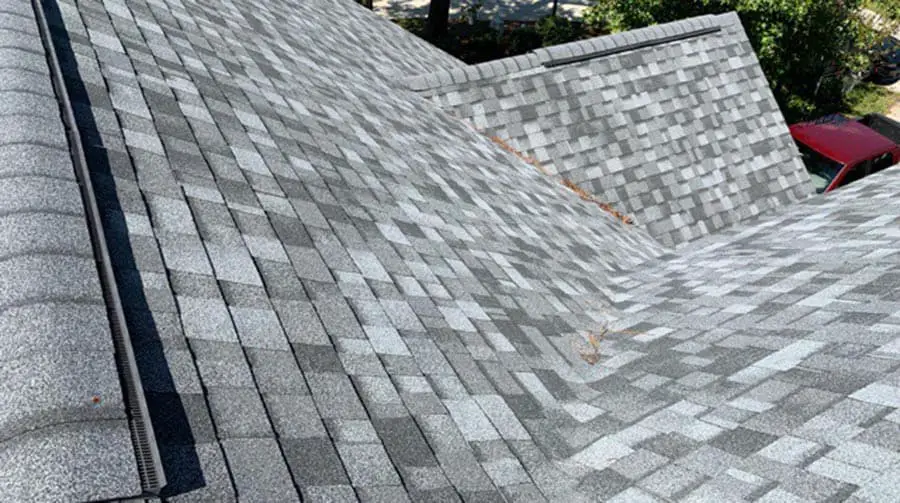
How Do I Get The Best Deal On A New Roof?
The best way to get a new roof is by offering a win-win arrangement with which you and the seller can be happy. Therefore, you need to use all your negotiation skills to get the best deal possible.
Here’s how to get the best deal on a new roof when buying a house.
1. Hire A Professional Home Inspector To Back Your Case
First, hire a qualified home inspector. As a home buyer, you stand the most to gain from a home inspection.
You can also make a home inspection a contingency in your contract with the home seller. If you have such an arrangement, you can withdraw your buying offer without penalty if you do it within a stipulated period. That way, if a home inspection reveals significant roof damage, you won’t have to deal with the high costs of replacing it.
Expect to pay anywhere from $250 to $400 to hire a qualified inspector to inspect your home. Think of the money you spend on a home inspection report as an investment that will probably save or net you thousands of dollars.
2. Try To Get A Complete Roof Replacement
Use the home inspection report to your advantage if you are the buyer. If you buy a home with an old or damaged roof, you can request that the seller replace the roof first before closing.
A home inspection contingency is helpful if the seller is uninterested in replacing the old roof. You can walk away after a home inspection if you cannot absorb those costs.
Another way of negotiating for the payment of roofing costs is by having your realtor request for the seller’s credit on your behalf. These refer to the seller’s money during closing as an incentive to make them more likely to buy the property.
Typically, sellers spend 2% to 5% of the purchasing costs on closing costs. Considering the median home price is $306,000, sellers usually spend 6,120 to 15,300 for a standard property sale. For this reason, it makes sense to negotiate for credit worth the entire roof replacement costs. Most sellers would be happy to reduce their closing costs.
Should you opt for seller’s credit, the seller can pay for some of your closing costs so you can cater for repairs. Alternatively, the home seller can tag that credit onto the final sale price. That way, you won’t have to pay for the repairs.
There is the seller’s option of paying the contractor the credit at closing for roof replacement. Holding the money in an escrow account is also a viable option. If some remains after the roof replacement, it will be returned to the seller.
3. Ask For A Discount
Discounts are an option for the home seller and the buyer in case of old or damaged roofing. If you are determined to have the home of your dreams, you can request the seller discount the house’s price so that you can use the savings to replace the roof.
If you opt for this course of action, ensure you get contractors’ estimates on the roofing costs. Then, use the provided estimates to negotiate for a lower buying price.
4. Offer A Lower Price For The Home
If you obtain a home inspection report early in the purchasing process and want to take care of the roofing issues yourself, you can ask your real estate agent to make offers accordingly. Therefore, you should ensure your purchasing offers should be low enough to let you have money left over for the roof installation.
For example, if the current price of the house for sale is $350,000 and the total cost of roof replacement is $12,000, your offer should not exceed $338,000. Of course, you can go even lower. Some may consider it a lowball offer, but it is an intelligent way to buy a home needing extensive roof repairs.
Making a lowball offer is an excellent negotiation tactic. You can use this strategy to spur the sellers to install a new roof to get their desired sale price. It will likely work best if the home has stayed on the market for too long.
However, if a home on sale is vastly underpriced and needs a new roof, consider paying as much as the asking price if you want it badly. You will benefit from instantaneous equity.
How Do You Negotiate With A Roofing Company?
Once you and the seller have agreed on who will pay for the new roof installation and the duty of overseeing the project falls on you, you should prepare to negotiate with a roofing company. But again, your home inspection report will guide you on what needs to be done. So, keep it close.
Below are the strategies you can use to negotiate with roofing companies:
1. Find Several Reputable Roofing Contractors
Finding reputable roofing contractors will help you get the best replacement roof possible. If you know someone in your social circle who has replaced a roof before, ask them to recommend someone. Also, ask your real estate agent, home inspector, previous homeowner, and even your insurance company to recommend anyone they know.
Once you have a list of roofing contractors in your locale, arrange them according to their reputation. Then, use Google, Yelp, Facebook, and any other review platforms to give you deeper insight into these contractors’ work.
Once you contact the recommended roofing contractors, tell them who recommended you. There may be a special discount for referrals.
2. Ask For Multiple Quotes
Request all the roofing contractors on your shortlist to check your home before giving their estimates. Experts recommend that you should have at least three quotes made by reputable companies. And let them break down those costs and explain the reasoning behind their recommendations. That will give you a better idea of what needs to be done.
Some of the factors that will affect the roofing cost estimates include:
- The area to be covered
- The pitch
- The materials you intend to use
- The extent of the damage on your roof
- Your location
- Roofing code requirements
- The reputation of the roofing contractor
- The workmanship warranty
Use the information provided to refine your list of roofing specifications. You can ask each contractor to resubmit new estimates based on these specifications. You can also reach out to additional contractors and ask them to check out your roof and submit bids based on what you want to be done.
Also, let everyone know you are looking at multiple bids. It will make contractors more likely to offer reasonable quotes.
3. Set Your Budget
Based on the contractor quotes you receive, set a budget. The amount could be based on what you and the previous homeowner have agreed upon, your insurance company’s willingness to pay, or your financial ability.
Typically, roofing contractors charge anywhere from $3.40 to $31.80 per square foot, depending on the roofing materials they will be working with. In addition, general roof laborers will cost $35 an hour, while roofers may charge as much as $130 an hour. So, when developing a roofing installation budget, ensure it’s reasonable. And remember that labor usually accounts for 60% of the roofing installation costs.
Don’t be afraid to ask for discounts. The worst thing that can happen is that the contractor will say no. But it’s also possible that you will get a deal.
4. Find Great Deals On Roofing Materials
While roofing materials only account for 40% of the entire roofing installation costs, their cost is still high. So, it pays to find great deals on roofing materials. You can ask your roofing contractor to recommend a roofing supplier. They have access to professional roofing networks and can probably negotiate for discounts from their regular suppliers.
However, if you feel the costs associated with your roofing company’s suppliers are too prohibitive, you can shop around for a better deal. Then, offer to pay for labor only.
You can shop through online platforms or contact roofing wholesale suppliers and manufacturers to determine whether you can get better deals. Remember to factor in quality and durability when looking for deals. Cheap can be expensive.
What To Do If You Can’t Afford A New Roof
You can use several strategies if you cannot afford a new roof. Below are some of them.
1. Reach Out To Your Insurance Company
Some active insurance policies tend to take effect from the date of closing. These will allow you to make repairs for as many as 30 days while offering the coverage you need when closing. So, if you have homeowners insurance, start by contacting the insurance company you pay premiums to. Inquire whether its coverage extends to replacing your roof.
Your roof may be covered if Mother Nature has damaged it or has experienced an accident. However, insurance may not cover it if your roof has normal wear and tear due to old age, so be prepared.
Be sure to have compelling evidence to improve your ability to claim your compensation. If possible, the evidence should be in clear photos of the entire roof or damaged parts. You can also take videos.
Your home inspection report will also come in handy. Insurance companies prefer working with professionals. So, submit your home inspection report because it can help your case.
2. Obtain Additional Financing
You may have to borrow more money to pay for a new roof. One way to do that is by getting a HELOC or home equity loan to finance the roof installation. But you must have some equity in your new property. You can also get a credit card loan. However, that would be an ill-advised move.
3. Save For A New Roof
You can also save for a new roof and finance its installation debt-free. Of course, that works best if your old roof can last a while longer.
4. Ask Friends And Family For Help
You can ask your loved ones for help if you need a new roof. Some can donate money, while others can contribute their expertise. Remember that people are not obligated to help, and some may refuse.
5. Create A Fundraising Campaign
With platforms like Kickstarter, it is now possible to create crowdfunding campaigns to get people to help you do almost anything. So, nothing stops you from fundraising to install a new roof on your house.
6. Apply For A Grant
Applying for grants can make it possible for you to get the new roof you desperately need. For example, the US Department of Agriculture (USDA) offers grants to low-income property owners so they can repair their homes under the Section 504 Home Repair program. Find out if you are eligible to get the grant.
In addition, you could benefit from the Weatherization Assistance Program (WAP) under the US Department of Energy (DOE). The program is meant to make homes more energy-efficient. It never hurts to apply.


